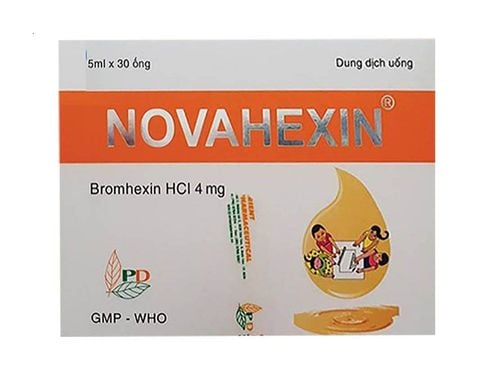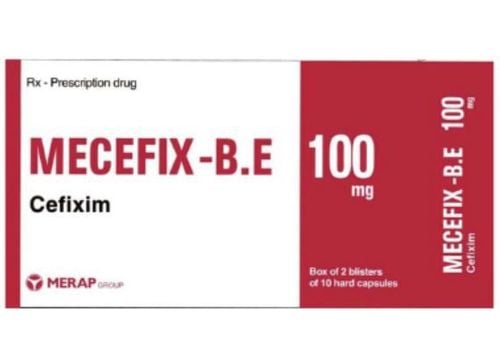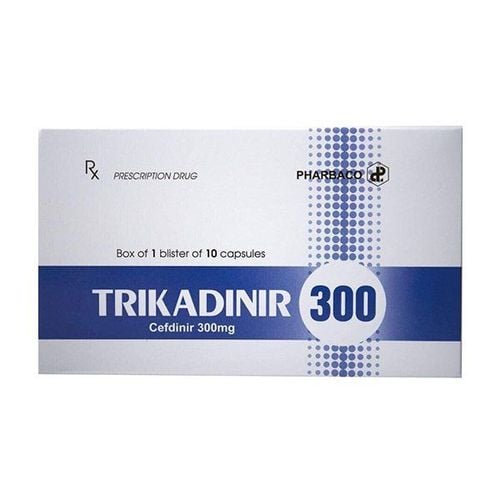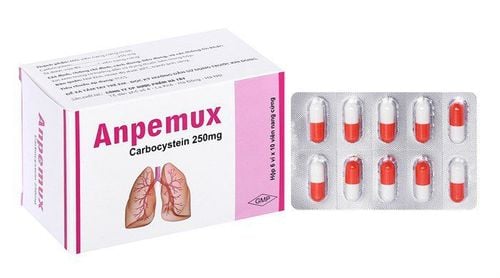This is an automatically translated article.
Disolvan belongs to the group of drugs that act on the respiratory tract with the main ingredient being bromhexine hydrochloride, commonly used to treat bronchial secretion disorders, especially in acute bronchitis or acute exacerbation of chronic bronchitis.
1. What are the effects of Disolvan?
Disolvan medicine has the main ingredient bromhexine hydrochloride, which is a synthetic derivative of the active ingredient vasicine, which helps to regulate and clear the respiratory tract. The mechanism of action of bromhexin is to activate the synthesis of sialomucin and break down the filaments of mucopolysaccharid acid, making sputum thinner and less viscous, thereby loosening sputum more easily and sputum from the bronchi to drain effectively. In addition, bromhexine enhances mucus transport by minimizing mucus viscosity and activating ciliated epithelium to help loosen phlegm and ease cough. Disolvan is often indicated in cases of respiratory diseases with increased sputum secretion and difficulty in expectoration such as acute and chronic bronchitis, forms of chronic obstructive pulmonary disease, chronic respiratory inflammation, pneumonitis, and bronchiectasis. Contraindications of Disolvan include patients with hypersensitivity to any of the ingredients and pregnant women (relative contraindication).2. Dosage of the drug Disolvan
Depending on the subjects and treatment goals, Disolvan is used in different doses:
Adults and children over 12 years old: take 8 mg x 3 times/day Children 6-12 years old: take 4mg x 3 times/day Children 2-6 years old: take 4 mg x 2 times/day Take the medicine right after eating It should be noted: The above drug dosage is for reference only, patients need to take the medicine as directed to ensure maximum efficiency.
3. Side effects of the drug Disolvan
In some patients when using Disolvan, side effects may occur such as:
Epigastric pain, nausea, diarrhea Headache, dizziness, sweating Skin rash, urticaria bronchial secretions in people who are unable to spit up phlegm Dry mouth Increased liver enzymes
4. Be careful when using Disolvan:
Some general notes when using Disolvan include:
While using Disolvan, it is necessary to avoid combining with cough medicines because there is a risk of sputum stagnation in the respiratory tract Be careful when using Disolvan with asthma patients bronchi, because bromhexin can cause bronchospasm in some susceptible subjects Caution when using Disolvan with patients with liver failure, severe renal failure Caution when using Disolvan for patients with debilitated, weak body, Inability to expectorate sputum Disolvan may interact with drugs such as: expectorants, cough suppressants and antibiotics Caution should be taken when using Disolvan in patients with a history of peptic ulcer disease, pregnant or lactating women. The drug Disolvan belongs to the group of drugs that act on the respiratory tract with the main ingredient being bromhexine hydrochloride, commonly used to treat disorders of bronchial secretions, especially in bronchitis. acute or exacerbation of chronic bronchitis. To ensure the effectiveness of the treatment, the patient needs to take the medicine exactly as directed by the doctor.
Follow Vinmec International General Hospital website to get more health, nutrition and beauty information to protect the health of yourself and your loved ones in your family.
Please dial HOTLINE for more information or register for an appointment HERE. Download MyVinmec app to make appointments faster and to manage your bookings easily.













